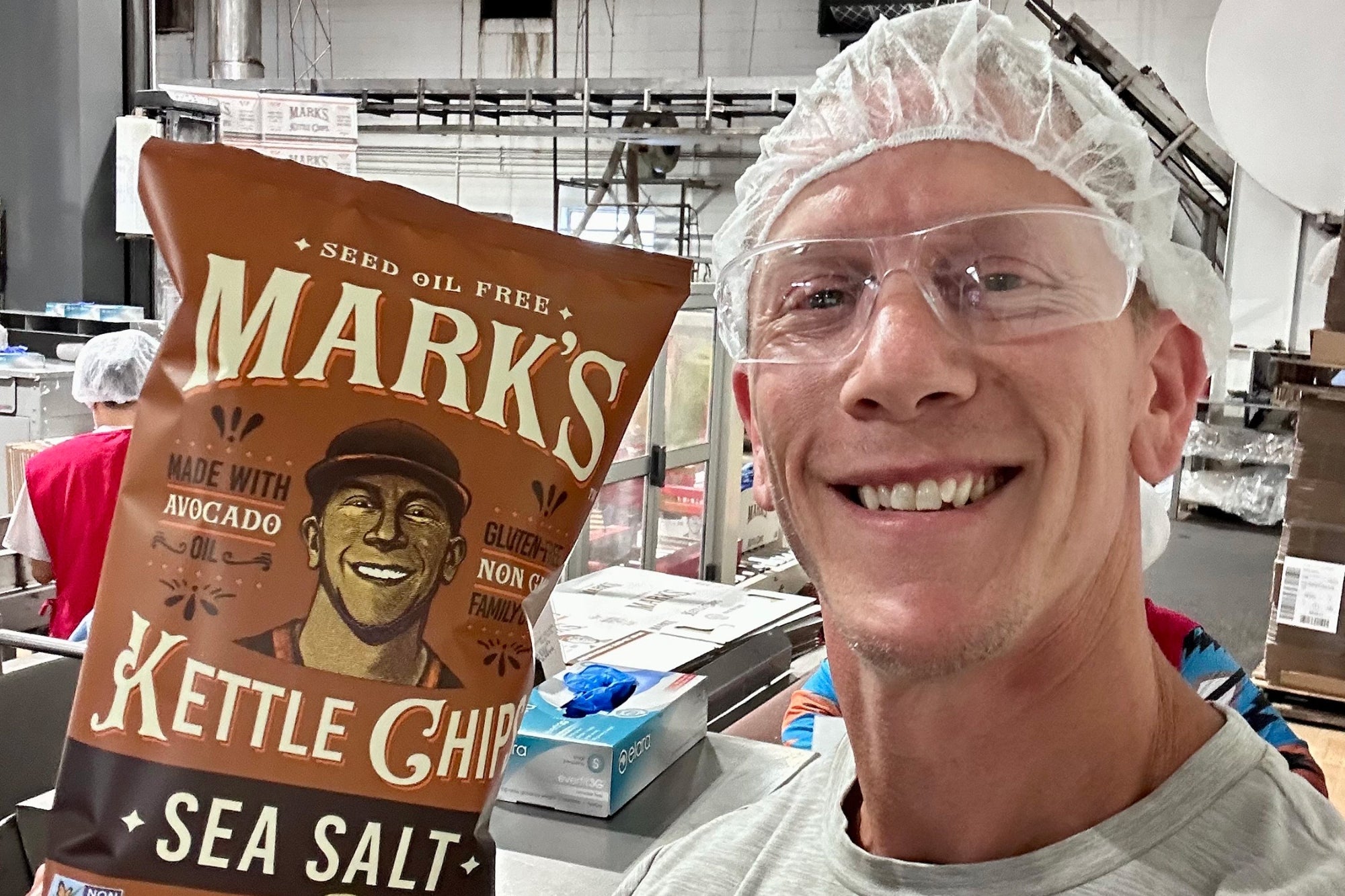'When Your Name Is on the Bag, There's No Hiding': Why This Founder Named A Snack Brand After Himself "I can't cut corners because it reflects directly on me and my family," says Mark Samuel of Mark's Snacks
By Jason Feifer

Tom's of Maine. Ben & Jerry's. Annie's. Burt's Bees. Bob's Red Mill. Mike's Hot Honey.
In the packaged goods industry, many founders name their companies after themselves — but why? And is there unique value to it?
Serial entrepreneur Mark Samuel has an answer, and it's why he's launching a new snack brand called Mark's Snacks. To him, it's all about radical accountability. "When your name is on the bag, there's no hiding," he says. "I can't cut corners because it reflects directly on me and my family."
Samuels has become a recognizable voice in the CPG (consumer packaged goods) industry. He founded IWON Organics in 2016, which was an early player in the protein snacks category. (It was eventually licensed.) He works on growth initiatives with Siddhi Capital, a VC firm that invests in food and beverage companies, and hosts the podcast Let's Eat.
With Mark's Snacks, Samuel is targeting another emerging health-focused trend — being free of seed oils. Mark's is launching with a line of kettle chips cooked in avocado oil, with a heavy emphasis on clean ingredients and a health focus. It's beginning as a primarily direct-to-consumer brand, via Amazon and TikTok shop play. "I'm deliberately rolling out the brand slowly to get real consumer feedback and insights," he says, "but I'm also working on much bigger opportunities in the background."
In this conversation, Samuel explains the benefits of being front-and-center in a brand — and what other CPG founders should know.
Snacks are a crowded category. What opening did you see that made you want to jump in?
Snacks are crowded, no doubt. But most of them feel like the same playbook — seed oils, long ingredient decks, and a generic story slapped on a logo. They don't actually stand for anything in the eyes of the consumer.
What I saw was an opening to build something different: snacks that are truly better-for-you, seed-oil-free, and paired with a brand that's personal and real. I want people to feel an emotional connection to what we're building — not just grab a bag, but feel like they're part of something with meaning behind it.
You're naming the brand after yourself. There's plenty of precedent for that, but it also feels unusual. What's behind that decision?
For me, this isn't just another snack brand — it's personal. Putting my name on it keeps me accountable and makes it real. I want people to know there's a person, a family, and a set of values behind this. If you love it, you'll know exactly who's standing behind it. If you don't, that's on me. That level of connection and responsibility is exactly what I think has been missing in this space.
Is there anything you're doing differently because you named the brand Mark's?
Absolutely. When your name is on the bag, there's no hiding. It makes every decision personal — from the ingredients we choose to the story we tell. I can't cut corners because it reflects directly on me and my family. It forces a higher standard, but it also creates a deeper connection with the consumer. They're not just buying chips; they're buying into someone they know is putting their name and reputation on the line.
You've built a great personal brand on LinkedIn, but that's primarily a B2B channel. How are you thinking about using or marketing yourself to the wider consumer audience for your chips?
LinkedIn has been incredible because it's real — I get to share the journey, the wins, the struggles, and people connect with that authenticity. While it started as B2B, the truth is consumers want the same thing: real people, real stories, and a reason to believe in a brand.
That said, we're not just relying on my voice — we'll be feeding the marketing machine too, running the smart plays that successful consumer brands execute on. The strategy is simple: combine authenticity with execution, so people not only feel connected to the brand but also can't miss it.
For founders afraid to be more public and put themselves out there, what's your advice?
My advice is simple: Do it. People don't connect with perfect logos or polished press releases — they connect with people. When you put yourself out there, you give your brand a heartbeat and a story others can rally behind. It's uncomfortable at first, but if you're not willing to show up publicly for what you're building, why should anyone else believe in it?
When people see a bag of Mark's, and they have no idea who you are, what do you hope they think about the Mark?
I hope they see Mark's and immediately think: this is a brand that stands for something. Even if they don't know me yet, I want the name to signal trust — that the chips are made with better ingredients, that there's a real person behind it, and that it wasn't just slapped together to chase a trend. Ideally, they feel curiosity too — Who's Mark, and why is his name on this bag? That curiosity gives us the chance to build a relationship that goes deeper than just a snack.
You're open about the challenges of the CPG industry. If someone is considering launching a CPG brand, what should they be thinking about before they make the leap?
The first thing I'd say is: know what you're walking into. CPG looks fun from the outside — cool packaging, big retail wins, social buzz — but behind it is a grind of logistics, margins, cash flow, and constant problem-solving. You need to understand the capital requirements, the time it takes to build real distribution, and the fact that velocity matters more than placement.
If you're not prepared to run lean, stay patient, and get punched in the mouth a few times along the way, it's probably not for you. But if you can stomach all that and still wake up excited to build, then it's the most rewarding ride you'll ever take.











